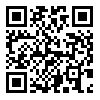مجله رویش روانشناسی از دادن گواهیهای کاغذی معذور است. لطفا تقاضا نکنید. همه گواهی ها در صفحه شخصی کاربران موجود است.
year 10, Issue 7 (atumn 2021 2021)
Rooyesh 2021, 10(7): 115-126 |
Back to browse issues page
Download citation:
BibTeX | RIS | EndNote | Medlars | ProCite | Reference Manager | RefWorks
Send citation to:



BibTeX | RIS | EndNote | Medlars | ProCite | Reference Manager | RefWorks
Send citation to:
Aziziaram S, Basharpoor S, Atadokht A, Molavi P. (2021). The effectiveness of Transcranial Direct Current Stimulation (tDCS) on improving Emotion Regulation and dysfunctional attitudes in people with Borderline Personality Disorder. Rooyesh. 10(7), 115-126.
URL: http://frooyesh.ir/article-1-2755-en.html
URL: http://frooyesh.ir/article-1-2755-en.html
1- M.Sc. Clinical Psychology, Faculty of Educational Sciences and Psychology, Mohaghegh Ardabili University, Ardabil, Iran.
2- Professor of Psychology, Faculty of Educational Sciences and Psychology, Mohaghegh Ardabili University, Ardabil, Iran. ,basharpoor_sajad@uma.ac.ir
3- Associate Professor of Psychology, Faculty of Educational Sciences and Psychology, Mohaghegh Ardabili University, Ardabil, Iran.
4- Associate Professor of Psychiatry, Faculty of medicine, Ardabil University of Medical science, Ardabil, Iran.
2- Professor of Psychology, Faculty of Educational Sciences and Psychology, Mohaghegh Ardabili University, Ardabil, Iran. ,
3- Associate Professor of Psychology, Faculty of Educational Sciences and Psychology, Mohaghegh Ardabili University, Ardabil, Iran.
4- Associate Professor of Psychiatry, Faculty of medicine, Ardabil University of Medical science, Ardabil, Iran.
Abstract: (2152 Views)
The aim of the current study was to investigate the effect of Transcranial Direct Current Stimulation (tDCS) on the improvement of emotion regulation and dysfunctional attitudes in people with Borderline personality disorder. The study method was a pretest-posttest quasi-experimental design with a waiting-list group. The statistical population of the study was all those people with borderline personality disorder who were referred to Fatemi hospital of Ardabil, Iran in the autumn of 2018. Thirty-two patients were selected by convenience sampling method and they were randomly assigned to two experimental (16 members) and waiting-list (16 members) groups. Members of both groups were individually responded to scales of emotion processing (EPS) Baker, Thomas, Thomas and Owens (2007) and dysfunctional attitudes (DAS) Weissman and Beck (1978). Then, the intervention was performed by the transcranial direct electrical stimulation device on the experimental group members for 10 consecutive days for 20 minutes by placing anode in region F3 and cathode in region F4 individually. Whereas the group of waiting-list participants did not receive this intervention. Then, a post-test was performed on both waiting-list and experimental groups. Data were analyzed by multivariate analysis of covariance (MANCOVA) with SPSS-24 software. Results showed that there were significant differences between experimental and control groups in intrusion, suppression, uncontrolled impulses, discordant and dissociation components of emotion regulation and perfectionism, need to others confirmation, need to others satisfaction, and suggestibility of performance evaluation components of dysfunctional attitudes (P<0.05). These results reveal the effect of transcranial direct current stimulation on improving emotion regulation and dysfunctional attitudes in individuals with a borderline personality disorder. Given to high resistance to psychological therapies in people with borderline personality disorder, these results can promise new neuropsychological interventions for this disorder.
Keywords: Borderline Personality, Emotion Regulation, dysfunctional attitudes, Transcranial Direct Current Stimulation.
Type of Article: Research |
Subject:
Clinical Psychology
Received: 2021/04/13 | Accepted: 2021/05/10 | ePublished: 2021/10/2
Received: 2021/04/13 | Accepted: 2021/05/10 | ePublished: 2021/10/2
Send email to the article author
| Rights and permissions | |
 |
This work is licensed under a Creative Commons Attribution-NonCommercial 4.0 International License. |







